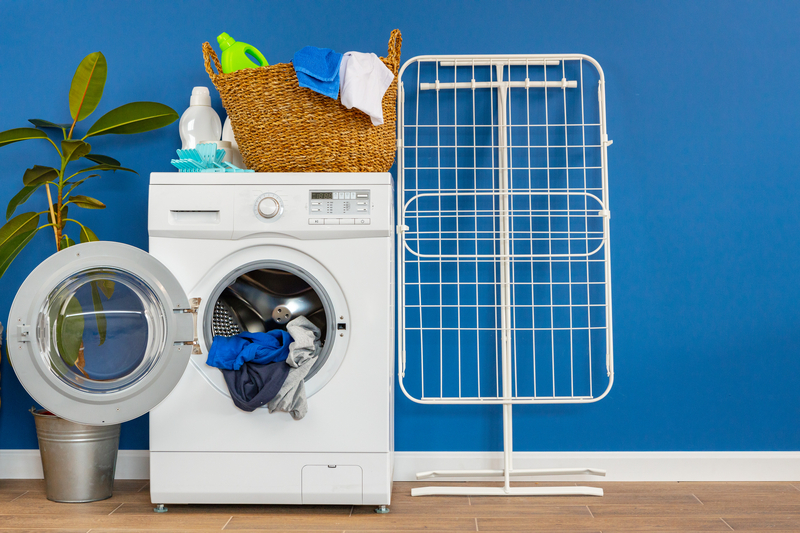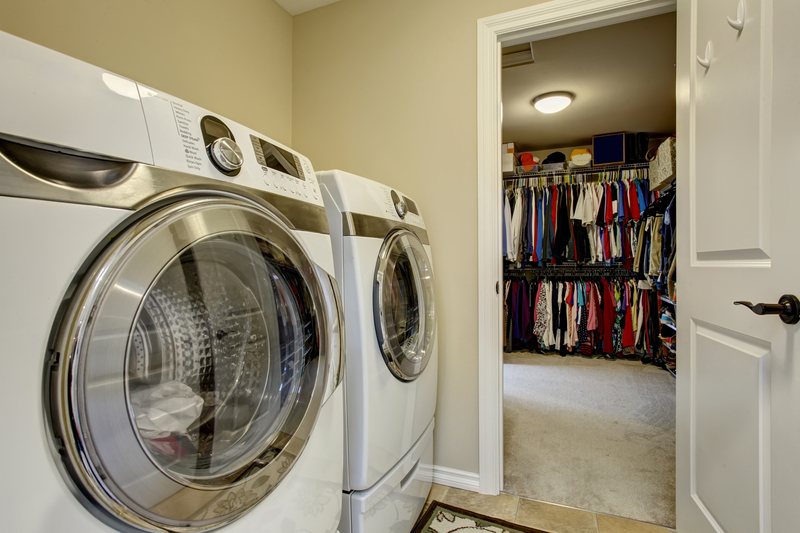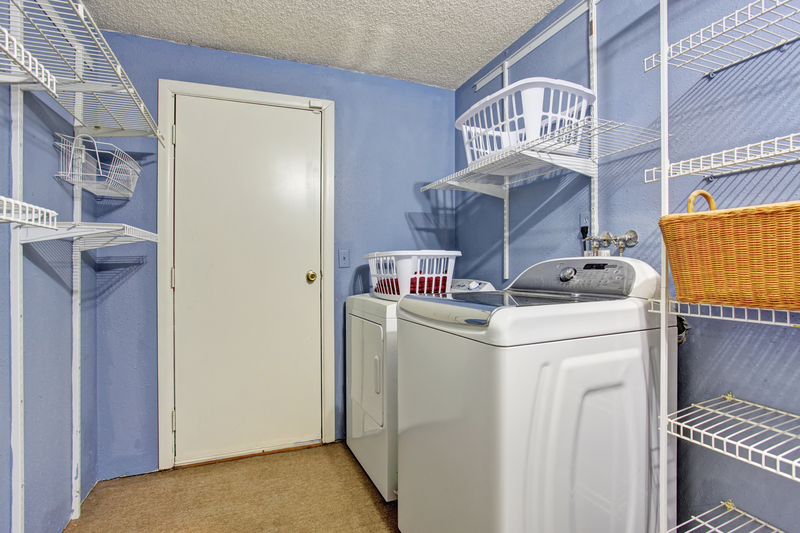This article is your complete guide to the question, when is the best time to do laundry? Right off the bat, running your washer after 11 PM is the best time to do laundry and can save you some money! But, we’ve got more tips and tricks on the best time to wash clothes and more! This guide is going to tell you all you need to know about when is the cheapest time to wash clothes and help you save money on your next energy bill.
Here at The Energy Professor, we want to give you the information you need to not only save money on your energy bill but to also become more energy efficient. We hope find this post helpful and it makes it easier for you to know more about the best time to do laundry. Be sure to also check out our one-of-a-kind energy savings calculator!
The Energy Professor Electricity Rate Check Tool
When is the Best Time to Do Laundry in 2024?

The best time to do laundry to save energy is late at night, during the times when nobody else is. These are typically an energy company’s “off-peak” hours. For the most part, people are asleep and not using appliances during off-peak hours so energy will be less expensive to use. Making this the best time of day to do laundry. If you’ve ever wondered how to save money on your energy bill, you’re probably aware of how much you use your washer and dryer. You’ve probably asked yourself, “Is it cheaper to wash clothes at night?” or “What’s the best energy-saving time to wash clothes?” By shock to us too, after 11 PM is the optimal time to run your washer to save on electricity.
Is it cheaper to do laundry at night?
- Yes, electric companies define peak hours as the time of the day when electricity demand is the highest. During peak electricity times, the price per kilowatt-hour (kWh) is the highest. The peak demand for electricity usually occurs Monday – Friday from 7 a.m. to 11 p.m., with the highest demand being early evening.
That means that doing your laundry after 11 p.m. can be some of the cheapest hours to do laundry in 2024. This can vary by state. Each state, depending on whether the energy market is deregulated or not, will have its set peak and off-peak hours. If your state has a deregulated market, you’ll find peak hours differ by the company you choose. These factors play a large role in determining the cheapest time to do laundry.
When is the best time to do laundry to save energy?
- Before 3 p.m. and after 8 p.m.
As we mentioned above, the worst time to do laundry is during those peak hours which would fall around 3 pm – 8 pm during the weekdays. So what is the best time to do laundry? The common times for off-peak hours would be before 3 pm and after 8 pm on the weekdays. But again, this differs by state. In Florida for instance, the most energy efficient time of day to do laundry would be after 10 a.m. and before 6 p.m. But in California, it is from 9 pm until 4 pm the next day.
When is the best time to do laundry on the weekends?
- Before 5 p.m. and after 8 p.m.
Unlike the weekdays, there are sometimes different sets of rules for the best time of the day to do laundry on the weekends. Weekends are known to be more “off-peak” electricity demand, so usually any time is the best time to wash clothes in 2024. This again will depend on the state or energy company that provides you with electricity. Most homeowners are out enjoying their days off on the weekends and not at home using their large appliances. Therefore, generally speaking, weekends can be the best time to wash your clothes.
Related Post: How Many Watts Does it Take to Run a Refrigerator?
When Time is Best to Wash Clothes in the Summer or Winter?

Before 10 a.m. and after 8 p.m. Anyone who lives in a state with extreme seasons knows how much an electric bill can change throughout the year. That is also true with the most energy-efficient time to do laundry, as well. Extreme heat in the summer or plunging temperatures in the winter can affect when is the cheapest time to run your washer and dryer.
When is the best time to wash clothes in the Summer of 2024?
- Before 10 a.m. and after 8 p.m.
In the summer, the peak temperature hits around mid-afternoon which means air conditioners start running, fans are turned on and other appliances have to work hard to cool down. The most energy-efficient time to do laundry in 2024 in the summer is in the morning before the heat starts to control the day. Try starting your laundry before 10 a.m. in the hottest summer months like July and August to help cut energy costs.
When is the best time to do laundry in the winter of 2024?
- After 4 p.m.
In the wintertime, it is typically the coldest right when we wake up in the morning and our home progressively becomes warmer throughout the day. That means we are running to our thermostats right away in the morning, causing an electric surge as we are making our morning coffee. That means the best time to do laundry to save money in the winter would be either in the evening or at night.
Related Post: Why is My Electric Bill So High?
How to Save on Energy When Doing Laundry – Best Time to Wash Clothes

To start, if you’re looking to save money on your electric bill, we’ve written a whole article with other tips and tricks you can use to save energy. Second, we always recommend that you make sure that your appliance is up-to-date and ENERGY STAR-approved. If your washer or dryer is out of date or running poorly, the best day to do laundry at home won’t matter.
So, while we’ve talked about what is the best time to use a washer and dryer, here are 5 tips to help you save money when doing laundry:
Tips and Tricks on How to Save Energy When Doing Laundry
- Use Cold Water
- Wash larger and fuller loads
- Make sure the lint trap is clean
- Air dry when possible
- Use a dry sensor mode
Use Cold Water
One of the largest expenses on our energy bill is the cost of heating and cooling. When you use hot water, your water heater has to warm up and use a lot of energy in the process. According to ENERGY STAR, almost 90% of the energy used in using a washing machine comes from using hot water. Hot water can also fade your clothing faster, as well as, ruin certain fabrics that are fragile. Add this to the best day to do laundry and you’re sure to lower the cost on your next energy bill.
Wash Full Loads of Laundry
We know the best time to wash clothes, but what about the best way to wash clothes to save money? It makes sense that the less you use your washer and dryer, the less energy you use overall. That is true when it comes to laundry.
Using your washer’s built-in settings and making sure you have a full load that isn’t overly full will save you when running your machines. Be aware that running load sizes that are too large will eventually damage your washer and dryer.
Make You’re the Lint Trap is Clean
As we mentioned above, an efficient appliance is the key to saving you money on your electric bill. The best way to keep your appliances working top-notch is to clean them regularly. That is most important for your dryer because a dirty lint trap can lead to a dangerous fire.
Cleaning the lint out of the trap will allow the air in your dryer to circulate more efficiently. That means your dryer will work faster which will use less electricity. Couple that with drying during off-peak best time to dry clothes in the dryer hours, which can help save you money and be more energy efficient.
Air Dry Clothing – Energy Saving Time for Laundry
Even if you aren’t able to do the best time to do laundry to save energy, you can always make up that energy loss with air-drying clothing. If your appliance isn’t running, then it isn’t using energy and you aren’t paying for it. Next time you do laundry, choose to air dry even half of your clothing. You will eventually see a difference in your yearly utility expenses.
Use a Dry Sensor Mode
Newer dryers have many different modes to help users same time and energy on their laundry loads. One of the best drying tools you can use is the moisture sensor or the dry sensor. This sensor can automatically detect when your clothing is dry and shuts off the machine when the cycle is complete. This can save a lot of money if you’re the type of person to uses timed dryer cycles. You could be wasting money!
Related Post: Gas or Electric Dryer: What’s Right for My Home?
When to Do Laundry to Save Money Overview – Off Peak Hours for Washing Clothes 2024

We hope that this article helped you learn the best time to do laundry and that you can use some of these tips to save money. If any of these tips make sense for other large appliances, don’t hesitate to do them. Many consumers don’t realize there are easy fixes to save them hundreds of dollars throughout the year, and it can be simple fixes like having a programmable thermostat.
What’s the Best Time to Wash Clothes Recap 2024
- Wash clothes before 4 p.m. and after 8 p.m.
- Try and use your washer and dryer during “nonpeak” electricity usage time (early evening)
- Pay attention to the seasons! We use more energy in the morning in the winter and more energy during the day in the summer. Washing clothes at night during both times can save money.
Related Post: How Many Watts Does a Video Game Console Use?
Best Time to Wash Clothes FAQ

Q: Does Doing Laundry at Night Save Energy?
A: Yes, doing laundry after or before peak demand energy hours will cost less. Utility companies tend to charge more in kilowatts-hour (kWh) during energy surges or peak demand electricity.
Q: What time of day is the cheapest to do laundry?
A: The cheapest time to do laundry is after 8 PM, and even waiting until 11 PM is even better! You can also run your washer before 3 PM to save some cash on your next energy bill too.
Q: When Should I Do My Laundry to Save Energy?
A: Try doing your laundry early in the morning, before 10 a.m. or after 8 p.m. to save money on your electric bill. Those times avoid the high demand for electricity times, which costs more to run appliances and electronics.
Do you Need Cheaper Electricity?
If you’ve taken the time to understand the information on your bill and discovered you’re paying more than you’d like for your electricity, have you looked around for a cheaper deal? The Energy Professor has a wealth of information on ways to save on your utilities, including details of top deals that could significantly reduce your monthly or quarterly electricity bills.
We hope you found this article helpful! If you are looking for ways to increase energy efficiency and sustainability in your home be sure to take a look at all of the latest renewable energy options in your area. The Energy Professor helps residential and small business owners find qualified energy suppliers in New York, New Jersey, Pennsylvania, Texas, Ohio, Maryland, Illinois, and Massachusetts.

